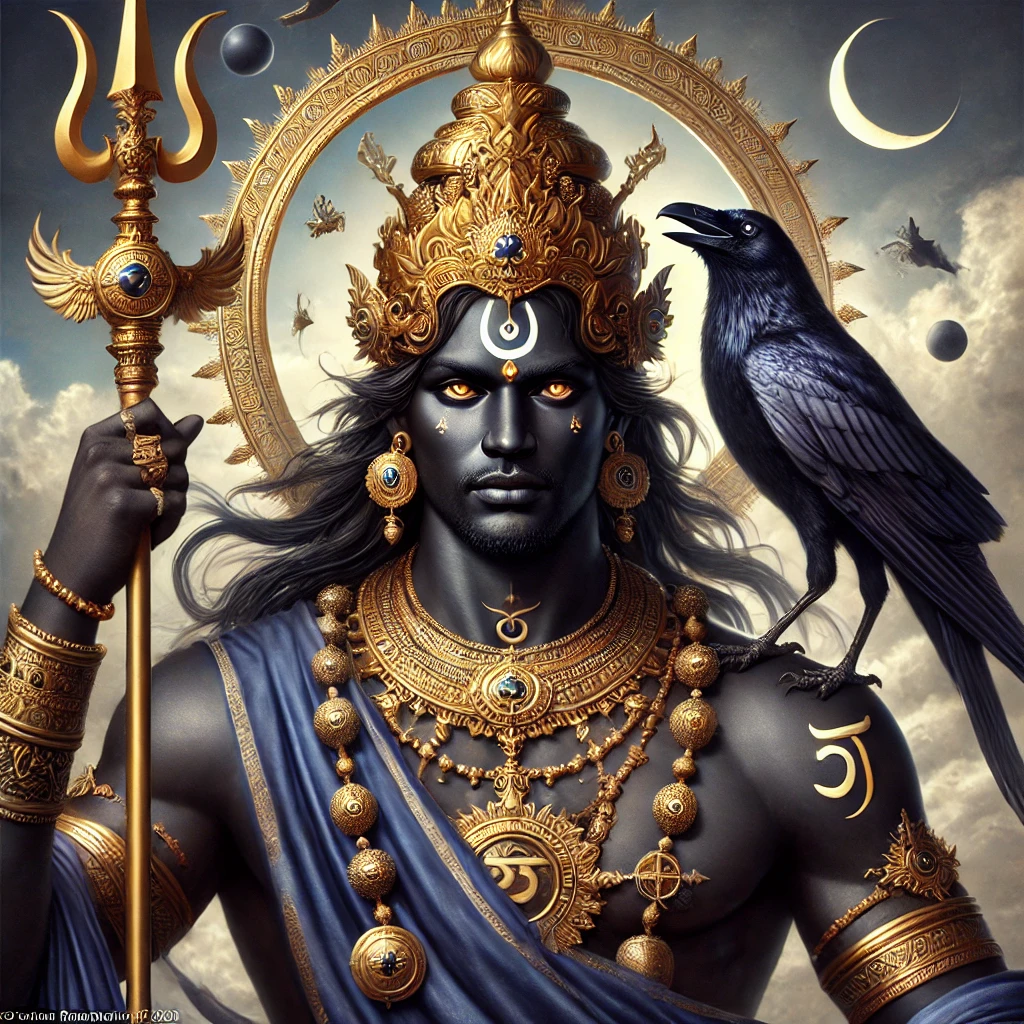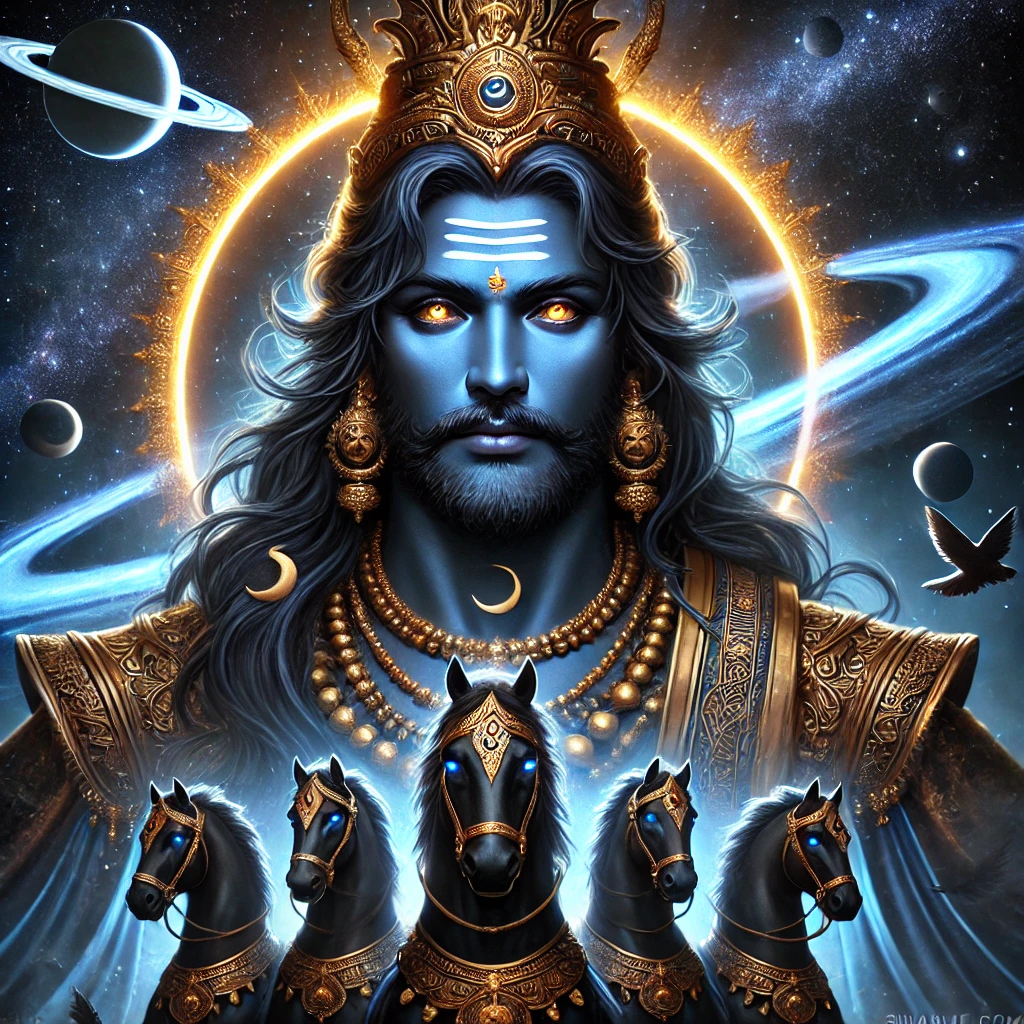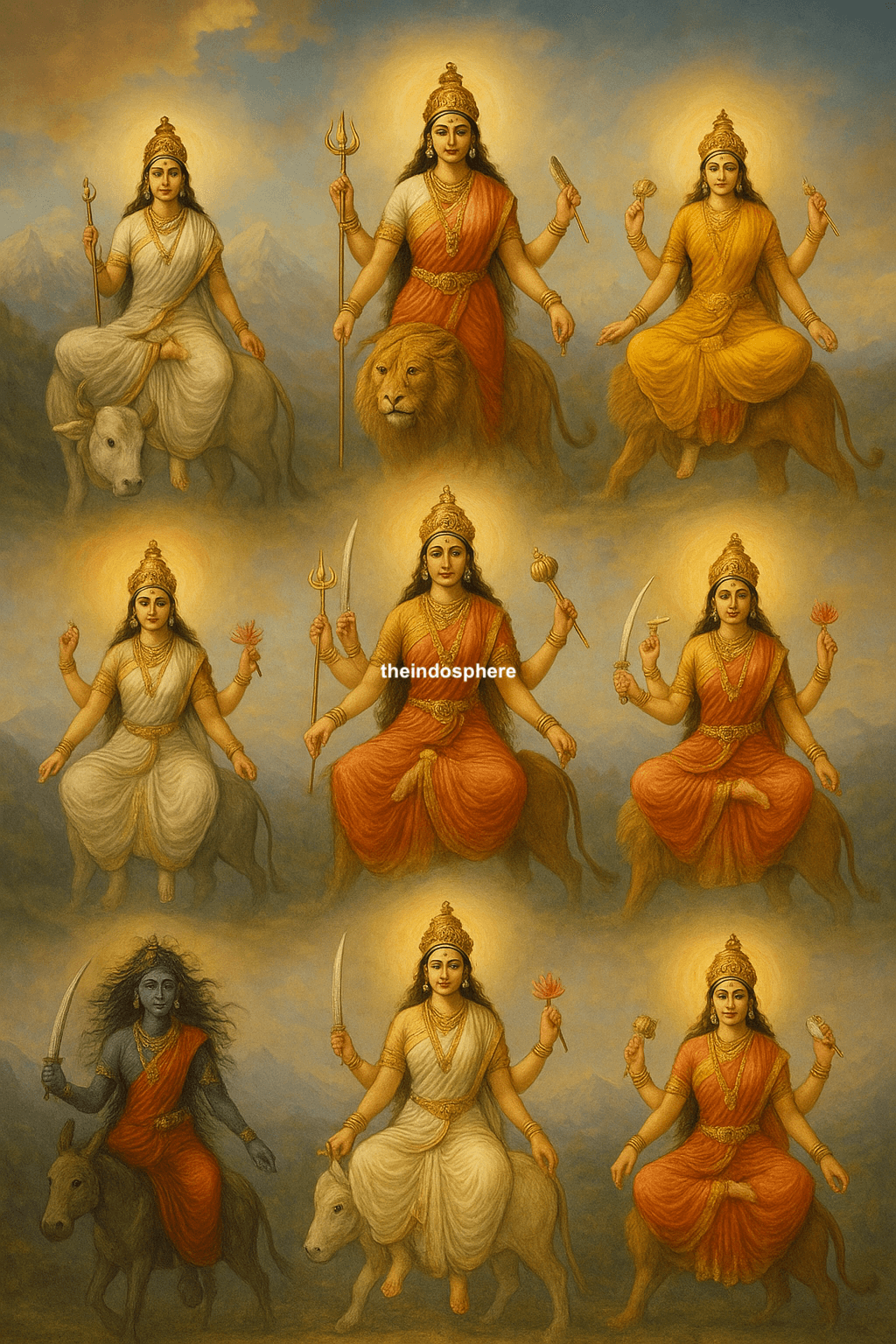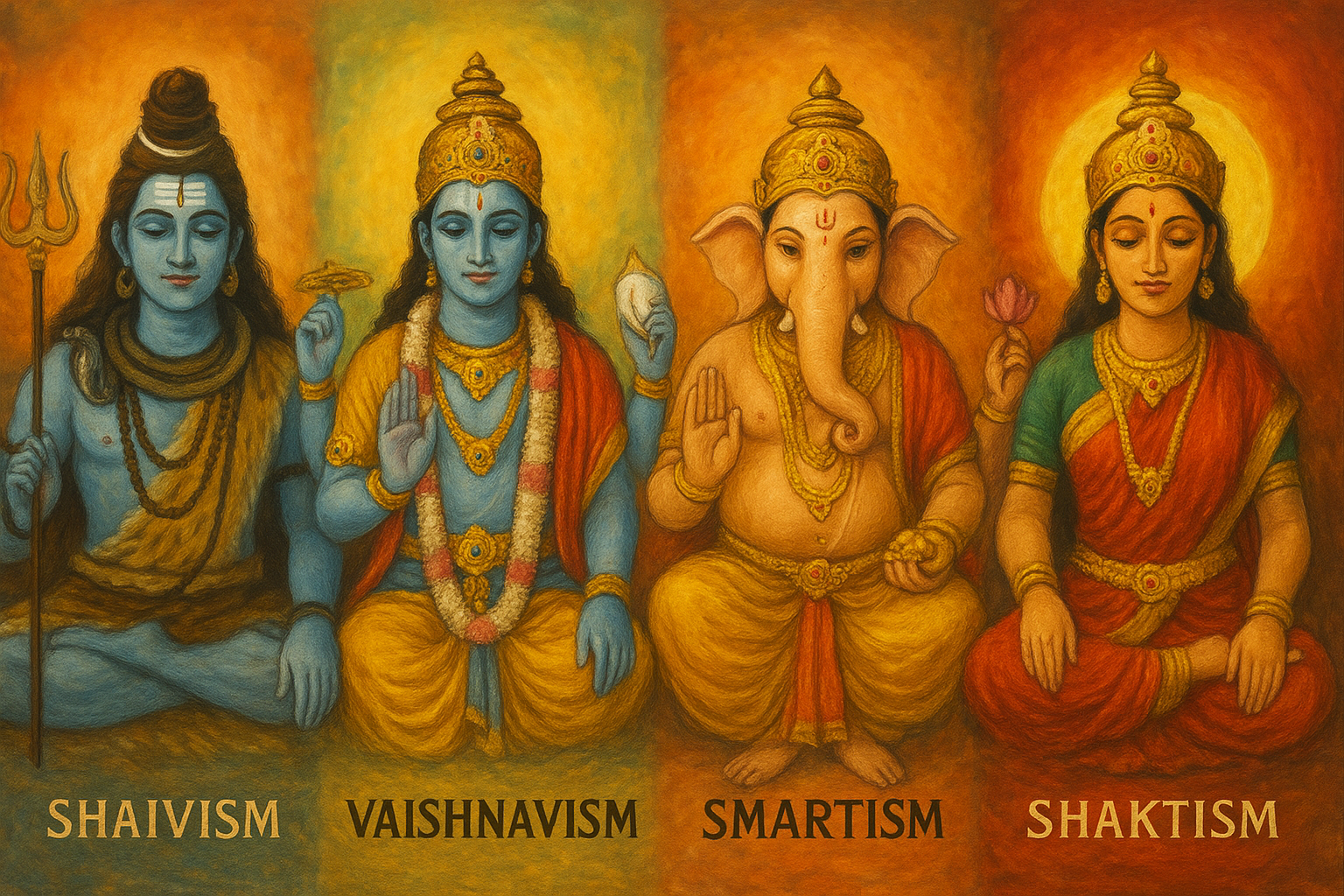Shani Dev, also known as Shani Maharaj, is a powerful deity in Hindu mythology, revered as the god of justice and karma. He is associated with the planet Saturn (Shani Graha) and is known to deliver rewards or punishments based on a person’s deeds. Feared and respected alike, Shani Dev plays a crucial role in Hindu belief systems, guiding people towards righteousness and discipline.

Origins and Mythological History
Shani Dev is believed to be the son of Surya Dev (the Sun God) and Chhaya (the shadow goddess), making him a half-brother to Yama, the god of death. According to Hindu scriptures, his mother performed intense penance to give birth to a powerful son, and her austere meditation influenced Shani’s nature—serious, strict, and detached.
There are several stories about his relationship with Surya. It is said that due to his mother’s neglect by Surya Dev, Shani developed resentment towards his father, which resulted in him casting his powerful gaze (Drishti) upon him, dimming his brilliance. This mythological tale symbolizes Saturn’s astrological impact on the Sun, affecting its strength in a person’s horoscope.
Another significant legend is that of Shani Dev’s devotion to Lord Shiva. Pleased with his penance, Lord Shiva granted him immense power over karma and justice, making him one of the most influential planetary deities.
Reverence and Importance in Hinduism
Shani Dev is regarded as the ultimate dispenser of justice, ensuring that individuals face the consequences of their past and present actions. Unlike other deities who may grant mercy, Shani Dev is known for his impartial nature—he neither favors nor discriminates but rewards good deeds and punishes misdeeds.
Astrologically, Saturn’s placement in a person’s horoscope can lead to periods of trials, known as Shani Sade Sati (a seven-and-a-half-year phase) or Shani Mahadasha, which are believed to bring challenges and hardships. Devotees seek his blessings to mitigate these adverse effects.
Appearance of Shani Dev
Shani Dev is often depicted as a dark-complexioned deity, symbolizing the deep and mysterious nature of his influence. His face carries a stern and serious expression, reflecting his role as the strict dispenser of karma. His eyes are particularly notable—legend has it that his gaze (Shani Drishti) can bring misfortune, which is why devotees often pray from a distance or with lowered eyes.
He is usually shown wearing black or dark blue attire, as these colors are associated with Saturn. His divine aura exudes an air of authority, discipline, and justice.
Weapons of Shani Dev
Shani Dev carries several symbolic weapons, each representing his role in justice and punishment:
- Danda (Staff or Mace) – A symbol of discipline and justice, used to deliver karmic retribution.
- Trident (Trishul) – Represents his connection to Lord Shiva and his power to remove ignorance and ego.
- Sword – Signifies his ability to cut through illusions and ensure fairness.
- Bow and Arrow – Symbolizes control over destiny and the power to strike at wrongdoing.
Vahana (Vehicle) of Shani Dev
Shani Dev is most commonly depicted riding a crow (or raven), which is associated with mystery, watchfulness, and justice. The crow is believed to be his messenger, observing people’s actions and carrying their karmic records to him.
In some depictions, Shani Dev is also shown riding an iron chariot pulled by buffaloes or vultures, further emphasizing his slow but inevitable impact, much like Saturn’s movement in astrology.
Each of these symbols reinforces Shani Dev’s role as the enforcer of karma, ensuring that every being receives the consequences of their actions, whether good or bad.
Temples of Shani Dev
Numerous temples are dedicated to Shani Dev across India, with devotees offering prayers and performing rituals to seek his grace. Some of the most significant Shani temples include:
- Shani Shingnapur (Maharashtra) – One of the most famous temples, known for its open-air shrine where the deity’s idol is placed without a roof. It is believed that Shani Dev protects the village from theft and dishonesty.
- Thirunallar Shani Temple (Tamil Nadu) – Associated with Lord Shiva, this temple is visited by devotees suffering from Shani’s negative influence.
- Shri Shaneshwar Devasthan Temple (Ujjain, Madhya Pradesh) – A prominent temple in Ujjain, where elaborate pujas and Shani Shanti rituals are performed.
- Kokilavan Dham (Uttar Pradesh) – This temple is associated with Lord Krishna and Shani Dev, where special prayers are conducted on Saturdays.
Rituals and Worship
Worship of Shani Dev primarily takes place on Saturdays, considered his sacred day. Devotees observe various rituals to seek his blessings, including:
- Fasting on Saturdays – Many people fast to reduce the negative effects of Shani Dosha in their horoscope.
- Offering Oil (Tailabhishekam) – Black sesame oil or mustard oil is poured on Shani Dev’s idol to please him and minimize difficulties.
- Chanting Mantras – Reciting Shani Mantras like “Om Sham Shanicharaya Namah” or the “Shani Chalisa” is believed to reduce obstacles.
- Feeding Crows and the Needy – Since crows are associated with Shani Dev, feeding them is seen as an act of devotion. Charity, especially to the poor, is also recommended.
- Wearing Black Clothes – Black is Shani Dev’s favorite color, and wearing it on Saturdays is considered auspicious.
Festivals Dedicated to Shani Dev
- Shani Jayanti – The birth anniversary of Shani Dev is observed with great devotion, especially in North India and Maharashtra. Devotees perform special pujas and prayers to seek his blessings.
- Shanivar Vrat – Observed every Saturday, this fasting ritual is undertaken to please Shani Dev and reduce astrological afflictions.
- Shani Amavasya – The new moon day falling on a Saturday is highly significant for offering prayers to Shani Dev. On this day, people visit temples, offer oil, and chant mantras to pacify his influence.

Stories and Lore of Shani Dev
1. Shani and Lord Hanuman
One of the most famous stories of Shani Dev is his encounter with Lord Hanuman. According to legend, when Shani Dev tried to test Hanuman during the Ramayana era, Hanuman bound him with his tail and kept him captive. After being released, Shani Dev promised that his influence would not harm Hanuman’s true devotees. This is why Hanuman worship is often recommended to those suffering from Shani Dosha.
2. King Vikramaditya and Shani’s Justice
A famous story tells how Shani Dev tested King Vikramaditya, known for his wisdom and justice. Shani inflicted immense hardships upon the king, making him a pauper and subjecting him to numerous trials. However, Vikramaditya remained virtuous and patient throughout. Pleased with his resilience, Shani Dev restored his kingdom and granted him prosperity. This tale signifies that patience and righteousness ultimately lead to divine blessings.
Shani Dev is one of the most powerful deities in Hinduism, embodying justice, karma, and discipline. Though often feared for his strict ways, his teachings emphasize righteousness, patience, and self-improvement. Devotees revere him for guidance in overcoming obstacles and achieving personal and spiritual growth.
By worshipping Shani Dev with sincerity and leading a life of good deeds, one can transform hardships into blessings, aligning with the principles of dharma (righteousness) and karma.


